Ex: http://www.cruycevanbourgonje.wordpress.com/

Van de Westvlaamse priester Odiel Spruytte (1891 -1940) kan met zekerheid worden vastgesteld dat hij tot de konservatief-revolutionaire strekking binnen de Vlaamse Beweging behoorde. En met even grote zekerheid dat hij zowel intuïtief als intellektueel het fascisme, resp. het nationaal-socialisme heeft gemeden. Hij heeft er nooit de zij het nog maar potentiële realisatie van ‘zijn” denkrichting in gezien. Daarvoor had hij een te luciede, afstandelijke benadering van het tijdsgebeuren, gepaard aan een grote onverschilligheid t.o.v. uiterlijkheden en openbaar vertoon.
Om misverstanden te vermijden willen we duidelijk stellen dat het uitsluitend in onze bedoeling ligt door middel van dit artikel de lezer een zo globaal mogelijk overzicht van én een inleiding tot het denken van Odiel Spruytte te geven; een andere bedoeling hebben we niet.
Spruytte’s aktiviteiten als publicist, zijn hoofdzakelijk te situeren op het metapolitieke vlak. Met aktuele vraagstukken heeft hij zich vrijwel nooit beziggehouden. Spruytte heeft, vanwege zijn konsekwent Vlaams-nationalistische houding, meermalen in verbitterd konflikt met zijn kerkelijke overheid gelegen.
We dienen rekening te houden, met de ideologische evolutie die Spruytte tijdens zijn korte leven doormaakte. De solidarist Spruytte uit het begin der jaren 20 verschilt aanmerkelijk met de korporatieve universalist van het einde der jaren 30. Op één punt heeft Spruytte evenwel nooit koncessies gedaan of evoluties ondergaan: hij was en bleef steeds vurig Vlaams-nationalist en radikaal Heel-Nederlander.
Sommigen noemen Spruytte, en niet hele maal ten onrechte trouwens, de “theoreticus van het Vlaams-nationalisme”. Ongetwijfeld waren Dosfel en Joris van Severen, om er maar enkele te noemen, voorlopers in het nationalistische denken tijdens het interbellum. Daar waar Dosfel echter niet uit zijn katholieke milieu geraakte en Van Severen, om het zacht te formuleren, niet altijd voor de hand liggende paden betrad, opteerde Spruytte voor een zgn. integraal nationalisme. Ongetwijfeld zijn er tijdens het interbellum in Vlaanderen vele, vaak verdienstelijke nationalistische theoretici geweest, maar de voornaamste én interessantste exponent blijft toch Spruytte. Voor zijn intellektuele vorming ging Spruytte zowat overal ten rade: Plato, Thomas van Aquino, Augustinus maar ook Nietzsche, Moeller van den Bruck, Othmar Spann en de Indische wijsbegeerte. Zoals we verder zullen zien, heeft Spruytte dit met een welbepaalde bedoeling gedaan. Als (anonieme) redakteur van het toonaangevende maandblad Jong Dietschland toonde hij een levendige maar tevens zeer kritische belangstelling voor het fascisme en het nationaal-socialisme. In de plaats van zich te vergapen aan uniformen en parades, zoals toen rechts (en links!) de grote mode was, zocht Spruytte naar de wezenskern en de filosofische onderbouw van deze nieuwe stromingen.
Alhoewel men kon vermoeden dat zijn furieuze afkeer van de toenmalige partij demokratische verwording hem meteen de demokratie zélf zouden doen verwerpen, blijkt dit bij onvooringenomen lektuur van zijn artikels helemaal niet zo te zijn, in tegen deel zelfs. Spruytte stond bekend als een scherp en intelligent tegenstander van het als “demokratie” geserveerde parlementaire treurspel der dertiger jaren maar hij heeft, vanuit zijn positie als theoreticus, niets nagelaten om de demokratie in gezondere banen te leiden. Voor hem betekende demokratie volksmedezeggenschap in de ruimste zin van het woord of, zoals zijn inspirator Arthur Moeller van den Bruck (1876-1925) het uitdrukte: “Het is niet de staats vorm op zich die een demokratie uitmaakt, maar de deel name van het volk aan de staat.” Voor de Vlaams-nationalist Spruytte, die leefde in een tijd dat van de Belgische grondwet niet eens een wettelijke Nederlandse versie bestond, vloeiden demokratie-kritiek, in Moellers zin, en anti-Belgische houding konsekwent in elkaar over — en vice versa. Als jong leraar aan een college te Oostende stond Spruytte een tijdje onder invloed van de Duitse kultuurfilosoof en pedagoog Friedrich Wilhelm Förster en poneerde daardoor, dat persoonlijke vrijheid steeds vergezeld van verantwoordelijkheidszin moest zijn. Persoonlijke vrijheid! Een van de reden waarom hij zich reeds te Izegem én tegen de kleursyndikaten én tegen de “partijhengsten” keerde. (1)
Wij trekken onze konklusies niet op een wijze zoals Maurice De Wilde en beschouwen Spruytte dan ook niet als een “vroege voorloper” van het fascisme of nationaal-socialisme in Vlaanderen.
Wel heeft Spruytte in aanzienlijke mate bijgedragen tot de “ruk naar rechts” tijdens de jaren 30 van het Vlaams-nationalisme. Het dichtst bij de werkelijkheid staat nog Spruytte’s biograaf, G. Vandewoude, die het gevat, zij het wel in dithyrambische bewoordingen als volgt uitdrukte: “Als een medicinale bloedzuiger zoog hij het gif met het bloed mee, om zijn bezoeker in zijn natuurechte gaven en geschiktheden, in zijn dynamisme en potentialiteit te verkennen”. (2) Spruytte’s benadering van ideologieën en filosofieën was van dezelfde natuur. Hij was een onvermoeibaar zoeker, een eclecticus bovendien, die even principieel als realistisch kon zijn. A.W. Willemsen zegt van hem in één zin : “Op tal van Vlaams-nationalisten heeft hij een grote persoonlijke invloed uitgeoefend” (3) Slechts twee namen ter illustratie : Staf De Clercq en Victor Leemans. Het leven van Spruytte is snel samengevat. Hij werd op 4 juli 1891 in het Westvlaamse Rumbeke geboren, als oudste kind uit een boerengeslacht. Hij studeerde aan het Klein Seminarie te Roeselare, werd in 1916 tot priester gewijd en vervolledigde zijn theologische studies aan de universiteit van Leuven. De baccalaureus die Spruytte was, werd achtereenvolgens in Izegem, Zwevegem, Wervik en Slijpe tot… onderpastoor benoemd. Hij zal het nooit “verder” brengen. Overal waar hij kwam, trachtte hij door middel van zelfstudie de ongeschoolde arbeiders hogerop te werken. Dat dit op tegenstand van Katholieke Staatspartij en klerus stuitte hoeft nauwelijks betoog. Spruytte werd een van de ontelbare petits vicaires die in Vlaanderen van parochie naar parochie zwerfde, om uiteindelijk te Slijpe van ellende te overlijden, op 49-jarige leeftijd. Ondanks zijn geleerdheid, enorme eruditie en haast encyclopedische kennis bleef Spruytte in wezen een Westvlaamse landman, zeer verbonden met zijn geboortegrond en met het geestelijke erfgoed van zijn voorva deren.
Een waardeloos leven? Een gefaalde man? Wij geloven het niet. Van Spruytte’s ideeëngoed is “iets” blijven hangen. Misschien staat de waarheid nog het dichtst bij wat ‘t Pallieterke in 1970 naar aanleiding van een Spruytte-herdenking ooit schreef: “Menselijkerwijze gezien is het leven van deze hoogbegaafde mislukt. Een priester rekent echter met andere maatstaven. En de geschiedenis van de Vlaamse Beweging ook.”
Wanneer wij Spruytte’s meta-politieke denken benaderen, dan dienen wij in acht te nemen dat bij hem twee opvattingen primeer deren: organische staatskoncept en de universalistische leer van Othmar Spann (4) Wegens het feit dat Spruytte zijn ideeën nooit heeft samengebundeld, kunnen we onmogelijk van een “systeem” spreken. Daardoor zullen we dan ook los van elkaar hangende themata aansnijden de organische staatsidee, universalisme, elitarisme, personalisme, pacifisme — toen en ook nu nog erg aktueel, zijn houding tegenover het V.N.V., het Verdinaso en het christendom. Voor wij met de meta-politiek aanvangen, willen wij de lezer eerst een bondig overzicht geven van het wijsgerig denken van Odiel Spruytte. Het een is onlosmakelijk verbonden met het ander. Ook willen wij iets over zijn bekende Nietzsche-essays vermelden. Het is moeilijk, om niet te zeggen onmogelijk, om Spruytte’s wijsgerig denken te situeren, of in één bepaald vakje te duwen, en aldus zijn denken te normeren. Trouwens, Spruytte’s denken is daarvoor te exuberant en te zeer verspreid. Wel vinden we in zijn leer herhaaldelijk bepaalde themata terug die toen gloeiend aktueel waren en zijn universalistische visie is meestal bepalend.
De filosoof Spruytte
Ofschoon Spruytte in menig artikel herhaaldelijk het empirisme verworpen heeft, is hij toch niet helemaal vrij te pleiten van invloeden ervan : “De levend-konkrete politieke denk- en aktiewijze die niet alleen vonken maar vuur doet loskomen is nog niet gevonden. Alleen waarheid die door het leven gewaarborgd en bekrachtigd wordt is werkelijke waarheid, beginsel van orde. Aan een abstrakte tijd- en ruimteloze waarheid gaat de geschiedenis voorbij. Om te werken moet het denken dienen midden een konkrete tijd, een konkreet volk, een konkrete situatie.” [Jong-Dietschland, nr. 37, 19331. Opmerkelijk is het eveneens, dat de Augustinus-volgeling die Spruytte was, en daardoor monotheïstisch-lineair gedacht zou moeten hebben, het thema van het cyclisch verloop van de tijd vrijwel centraal stelde : “De onbegrensde rijkdom der natuur (en van het mensenleven) drukt zich uit in steeds wisse lende vormen. Alles op de wereld vergaat, alles op de wereld vernieuwt. Wanneer het leven in vormen vastgegroeid is, groeit het erboven uit. De oude vormen zijn van dan af voos, onwaar, dood. Zij hebben hun betekenis verloren, zij drukken de kwaliteit omlaag, zij verhinderen de groei. Alleen wat in een konkrete situatie beantwoordt aan de stijg kracht van het leven, van de mens, van de gemeenschap, heeft een positieve betekenis, alleen dat bezit leven. Het is om een modern veel- en weinig-zeggend woord te gebruiken : existentiëel noodzakelijk”. [Kultuurleven, nr. 1,1935]
In dat belangrijke artikel in Kultuurleven schreef Spruytte zijn principes en doelstellingen neer omtrent hetgeen hij essentiëel en primerend vond in de konservatief-revolutionaire gedachten van zijn tijd. Hij opende zijn artikel met de vaststelling, dat : “de omkering, waarin onze wereld zich bevindt, is in haar kern van innerlijk-geestelijke aard. Er staat oneindig veel meer op het spel dan
De nieuwe denkhouding, gaat Spruytte verder, staat diametraal tegenover die van de vorige generaties, en hij spot met de “empirische geleerden” die het menselijke weten enkel kwantitatief vergroten, en de “abstrakte systematici”, die louter begrippen met begrippen vergelijken. Beiden verweet hij veelweterij, ban kiersgeest en intellektualisme. Overigens heeft Spruytte voor het “intellektualisme” niets dan verachting “Tengevolge van het intellektualisme leed onze tijd aan een tweespalt tussen geest en leven. De boom des Wetenschappen was wel dor, maar groen de boom des Levens.” Tegenover het intellektualisme, stelde Spruytte zijn koncept van “de mens der waarheid”, want die “beleeft de waarheid als vruchtbaar-organische kracht van de kosmos, en hij hangt met de blik van zijn ziel aan het levend oorspronkelijke, aan het wezenlijk eenvoudige, hij beluistert de oerklanken van het leven. Niet veel-weten is zijn zorg, maar levende deelneming aan de rijk- dom van het zijnde, aan de schoonheid van wat alles is. Derhalve is zijn denken niet los gerukt van het zijn, doch dorst naar het zijn, wijsgerige gezindheid dan. Het is ook niet vreemd aan zijn leven en eigen zijn als ijdel liefhebber, als een lastige dwangarbeid, maar het is geheel gericht op de verruiming, de verrijking van zijn menselijk wezen: het is onmisbaar levensbrood, geen sieraad maar levens bestanddeel en levensnoodzakelijkheid.”
Wanneer we stellen dat Spruytte een humanist was, dan plaatsen we dit woord in een heel andere kontekst als dewelke het woord nu symboliseert : marxistoïde, naïef, ireëel, een zoeterige smaak in de mond nalatend. Spruytte was humanist in de zin zoals Nietzsche, Spengler e.a. het waren. Hij koesterde geen verheven utopische theorieën nopens zijn medemens, maar aanvaardde hem in zijn komplexe werkelijkheid. Hij heeft boeiende geschriften aan de mens gewijd, en het lijkt ons de moeite waard om uit enkele daarvan te citeren.
De vraag, zo schrijft Spruytte, wat is edel ? kan niet opgelost worden zonder rekening te houden met de vraag: wat is de mens ? [Kultuurleven, nr. 1, 1939]. Spruytte beschouwde de mens als een “vrij zichzelf bepalend wezen, … is aan geen enkel ondergeschikt, heeft tenslotte enkel voor eigen geweten en God te verantwoorden. Hij heeft in de schepping een eigen onvervangbare plaats, is door de schepper met eigen gaven toegerust, beschikt over de vrijheid en de roeping om zijn aanleg en mogelijkheden binnen de orde van het geheel te verwezenlijken.” vraagstukken van louter uiterlijke sociaal-ekonomische of politieke aard. De in richtingsvormen der maatschappij krijgen maar een zin wanneer zij begrepen worden in hun verhouding tot het menselijke type, waarvan zij een werktuig en een weerspiegeling uitmaken. Het ideaal ‘mens’, zoals het aan onze tijdgenoten voortzweeft, is de innerlijkste ziel en de verklaring van het zichtbaar gebeuren.” Spruytte stelde vast, dat het koncept van de nieuwe mens het “strijdbeginsel van de sociale en politieke nieuwwording” impliceerde. Het ideaal van “de nieuwe mens” was inherent aan de staatsvorm. De lezer moet wel in ogenschouw nemen dat de formulering “de nieuwe mens” bij Spruytte een specifieke betekenis had. Volgens Spruytte was er eigenlijk niets absoluut nieuw, want de geschiedenis staat nooit stil en doen de elkaar opvolgende perioden “nu weer eens deze dan gene krachten en funkties van het menselijke wezen aan het licht of weer in het duister treden”. Spruytte heeft het verder over de voorzienigheid, die volgens hem, niet mechanisch van buiten af beweegt “maar immanent van binnen uit, wij bedoelen hiermede de volgende vaststelling : de mikrokosmos Mens, zoals de makrokosmos Heelal, is op even wicht aangelegd maar tevens op dynamische groei nooit staat iets stil en alles is met alles verwant. Dit geldt ook voor de gemeenschapswereld.” Hier reikt Spruytte de hand aan het oeroude Herakleitische beginsel panta rhei, alles vloeit, alles verandert voort durend.
De nieuwe denkhouding, gaat Spruytte verder, staat diametraal tegenover die van de vorige generaties, en hij spot met de “empirische geleerden” die het menselijke weten enkel kwantitatief vergroten, en de “abstrakte systematici”, die louter begrippen met begrippen vergelijken. Beiden verweet hij veelweterij, bankiersgeest en intellektualisme. Overigens heeft Spruytte voor het “intellektualisme” niets dan verachting “Tengevolge van het intellektualisme leed onze tijd aan een tweespalt tussen geest en leven. De boom des Wetenschappen was wel dor, maar groen de boom des Levens.” Tegenover het intellektualisme, stelde Spruytte zijn koncept van “de mens der waarheid”, want die “beleeft de waarheid als vruchtbaar-organische kracht van de kosmos, en hij hangt met de blik van zijn ziel aan het levend oorspronkelijke, aan het wezenlijk eenvoudige, hij beluistert de oerklanken van het leven. Niet veel-weten is zijn zorg, maar levende deelneming aan de rijk- dom van het zijnde, aan de schoonheid van wat alles is. Derhalve is zijn denken niet los gerukt van het zijn, doch dorst naar het zijn, wijsgerige gezindheid dan. Het is ook niet vreemd aan zijn leven en eigen zijn als ijdel liefhebber, als een lastige dwangarbeid, maar het is geheel gericht op de verruiming, de verrijking van zijn menselijk wezen: het is onmis baar levensbrood, geen sieraad maar levens bestanddeel en levensnoodzakelijkheid.”
Wanneer we stellen dat Spruytte een humanist was, dan plaatsen we dit woord in een heel andere kontekst als dewelke het woord nu symboliseert : marxistoïde, naïef, ireëel, een zoeterige smaak in de mond nalatend. Spruytte was humanist in de zin zoals Nietzsche, Spengler e.a. het waren. Hij koesterde geen verheven utopische theorieën nopens zijn medemens, maar aanvaardde hem in zijn komplexe werkelijkheid. Hij heeft boeiende geschriften aan de mens gewijd, en het lijkt ons de moeite waard om uit enkele daarvan te citeren.
De vraag, zo schrijft Spruytte, wat is edel? kan niet opgelost worden zonder rekening te houden met de vraag: wat is de mens ? [Kultuurleven, nr. 1, 1939]. Spruytte beschouwde de mens als een “vrij zichzelf bepalend wezen, … is aan geen enkel ondergeschikt, heeft tenslotte enkel voor eigen geweten en God te verantwoorden. Hij heeft in de schepping een eigen onvervangbare plaats, is door de schepper met eigen gaven toegerust, beschikt over de vrijheid en de roeping om zijn aanleg en mogelijkheden binnen de orde van het geheel te verwezenlijken.”
Vermits Spruytte een universalist was, zag hij de mens als enkeling deel uitmaken van het geheel der maatschappij, maar hij voegde er wel een bijzondere overweging aan toe “Het is denkbaar dat de mens én persoonlijk en sociaal aangelegd weze. Dit zou leiden tot de erkenning van een goddelijk-natuurlijke rechtsfeer én van het individu én van de staat. De spanning van dubbele rechtsfeer in de mens, die even oorspronkelijk en natuur lijk in hem woont, en de dubbele rechtsfeer maakt heel het vraagstuk uit van de gemeen schap. De twee polen zijn natuurlijk en onmisbaar. Tussen beide beweegt zich het leven en de geschiedenis. De formulering van één enkel alternatief leidt tot de uitscha keling van een der beide polen en drijft het onderzoek in tamelijk eenzijdige richting.” [Kultuurleven, nr. 6, 19341 Zoals vrijwel alle konservatieve denkers, koesterde Spruytte grote belangstelling en bewondering voor het heroïsche in de mens, hetwelk hij in nauwe relatie zag met — de volgens hem — beste tradities uit de christelijke ethiek en beschouwde beide inherent aan elkaar. Maar, aldus Spruytte, niet zelden wordt “de ethiek van adel, eer, dapperheid, heldhaftigheid, enz., geprezen ten koste van de christelijke ethiek, die deze waarden z.g. uitsluit en enkel op de liefde is gericht.” [Kultuurleven, nr. 1, 19391 Spruytte betitelde sterkte als een “kardinale deugd”. Ongetwijfeld was hij hierdoor beïnvloed door Friedrich Nietzsche, en het heroïsme stond tijdens het interbellum in vele stelsels centraal. Het is vooraf klaar, zo meende Spruytte, dat “de ontwaking van de zin voor edele waarden een grote vooruit gang uitmaakt op de louter utilitaristische en materialistische ethiek, waarop zij een reaktie betekent.”
Vanzelfsprekend verwierp Spruytte én het liberalisme én het marxisme. Volgens hem beweren de eerste te geloven dat “het staathuishoudkundige leven door niets dan stoffelijke profijtzucht vooruitgestuwd wordt en zij schakelen alle zedelijke beweegredenen uit dit gebied”. De marxistische theorie werd door Spruytte eveneens gewogen en te licht bevonden : “Karl Marx zag in de ganse geschiedenis geen ander dan stoffelijke werkkrachten aan de arbeid. De Wijze, de Held, de Heilige behoorden dan ook logisch tot het gebied, dat hij ‘ideologie’ noemde. Zij ook zijn niet anders dan een behendig masker, waarachter zeer realistische belangen zich verschuilen.” Spruytte resumeerde beide stelsels en plaatste ze onder één noemer “ De mens, die met handelsgeest bezield is, denkt te laag over het leven om aan heldenverering te doen.” Maar konkreet gezien, hoe stond Spruytte zelf tegenover het heroïsme ? Hij gaf daar over eerst een psycho-analytische verklaring “ Wij weten dat de mens niet altijd zijn ‘geluk’ wil. Hij is zelf de grootste vijand van dat ‘ geluk’ — in deze zin. Voor de beleving van een korststondige glorie, voor een droom, slaat hij jaren ver zijn ‘ geluk’ redde loos stuk. Hij verzaakt aan eigen, kleine veiligheid — uit heroïsche impulsen, uit gemeenschapszin, enz.” Spruytte stelde het zo voor : “Een heroïsche levensvisie, zonder meer, stelt voorop dat men boven het utilitaristische uitgestegen zij, doch ook dat men vreemd sta ten opzichte van de goddelijke transcendentie, volgens het woord van Nietzsche, de heraut van de moderne helden verering ‘ God is dood, — nu willen wij dat de Übermensch leve.” Het is zeer opmerkelijk, dat Spruytte’s visie op het heroïsme gekoppeld wordt aan Nietzsche’s begrip van de ‘Übermensch’, de superieure mens, want beiden zijn verschillend in wezen en geest. Spruytte beschouwde de heroïsche levensvisie inherent aan “ adel”. Dit is een natuurlijk uitvloeisel van zijn bewondering voor Nietzsche, alhoewel hij in ons geval enkele thomistische aforismen citeerde. Spruytte konkludeerde als volgt: “De verzoekingen van het heroïsme zijn :
trotse weigering om de last van het noodlot door gedachten van een voorzienigheid te verlichten, volle aanvaar ding van een niets dan tragische werkelijkheid, dappere bekentenis tot het eindige en tot het niets.” Het is merkwaardig, dat ondanks Spruytte’s voorliefde voor het heroïsche, hij in zijn geschriften daarover, merkwaardig nuchter bleef en nooit in dithyrambische lithanieën viel.
Laten wij de ethiek van Spruytte eens onder ogenschouw nemen. Voor Spruytte vormden ethiek en aristokratisch denken geen kontradiktie, maar één geheel. Hij heeft dit meermaals herhaald en benadrukt. Het blijkt, dat Spruytte’s ethiek opmerkelijke invloeden van Nietzsche heeft ondergaan : “Het goede is niet altijd groot, niet altijd edel. Het kan ook gewoon, alledaags zelfs kleinburgerlijk zijn. Men kan zelfs het grensgeval vaststellen dat het kwade van grootheid en adel getuigt.” Voor Spruytte waren “denkhouding en ethische houding steeds innig met elkaar verwant. De theoretische wereldbeschouwing van een periode en haar zedelijke idealen zijn altijd door dezelfde geest beheerst.” [Kultuurleven, nr. 1, 19351 De degeneratieverschijnselen in een bepaalde kultuur omschreef Spruytte als volgt “Indien bij een mens, of bij een periode der menselijke geschiedenis, zedelijke verschrompeling, verdorring ontstaat, dan is het steeds omdat de primaire zedelijke waarheden, waarden en krachten hun natuurlijke invloed, hun elementaire werkkracht hebben ingeboet, daar zij overdekt of gefnuikt waren. In de ongeremde werking der eerste beginselen ligt de ware zedelijke levensader en zij is de voorwaarde tot zedelijke ademtocht.” Wil men uit de impasse geraken, dan moet men aan deze beginselen heraanknopen “Alleen een mens die van volmaaktheid afweet er een innerlijke drang toe voelt, zal bekwaam zijn om een zedelijke herstelling van zichzelf tot zedelijke gansheid door te zetten”. De zedelijke gezindheid is nooit onveranderlijk geweest, want zo beklemtoont Spruytte: “Wij kunnen de natuurvaste geldigheid van alle zedelijke goederen en normen handhaven en toch bevestigen dat de voorkeur van bepaalde tijden naar bepaalde deugden gaan.”
Spruytte merkte op, dat zijn tijd een voor liefde koesterde voor de “edele mens, hun gezindheid is aristokratisch” en alhoewel dit een persoonlijkheidsideaal is beschouwde hij het evenzeer als een maatschappelijk ideaal.
Terloops rekende Spruytte af met het egalitarisme, dat zich in onze tijd meer en meer opwerpt als de nieuwe “mythe van de 20ste eeuw” “Van natuurwege bestaan onder de mensen een rangordening van uitmuntendheid, die kulmineert in de hoogste vertegenwoordigers. Ten alle tijde en in elke menselijke groepering was deze uitmuntendheid, die enige personen voorbestemde tot leiding en heerschappij. En het was deze adel die de maatschappij bewaarde en naar de toekomst droeg. Alle aristokratie brengt onderscheid mee in denken, voelen, houding een onder scheid dat weldra uitloopt op kontrast met het gemene, zodat wij komen te staan voor gesloten groepen.
De adel waarvan het moderne ethos zich oriënteert is niet deze van titels of ereposten, maar de natuurlijke adel die sluimert in het volk, een adel van levende en niet afgezonderde krachten. Het ethos der adelijke gezindheid is in tegenstelling met dat van de gelijkmakerij en van het humanitarisme.” Adel is, volgens Spruytte in strijd met het gemene, niet met het algemeen menselijke. En Spruytte ging verder met zijn aanval op het egalitarisme; of zoals hij het noemde, de ‘gelijkmakerij’ “De egalitaire strevingen maken de mensen gelijk, naar onder toe d.i. in de materiële belangen. Hun ethos is beheerst door de vraag : wat is nuttig, wat is voordeelbrengend ? Zij strijden tegen alle meerwaardigheid voor de gelijkheid di. voor de maatschappij der minderwaardigen. Het algemeen menselijke vatten zij oppervlakkig op, als de stoffelijke uiterlijke zijde van ‘s mensens bestaan. Het ethos van onze indus triële maatschappij is gekant tegen alle menselijke superioriteit, vooral tegen deze die aangeboren is.”
Even verder heeft Spruytte het over het “prestatiebegrip”, dat hij als het “scheppend kunnen” beschouwde. Spruytte was de pertinente overtuiging toegedaan, dat de persoonlijkheid van de edele mens staat of valt met zijn prestatie. Spruytte haastte zich wel — om eventuele misverstanden te voorkomen — te vermelden, dat dit voorrecht niet zou blijven voorbehouden “aan enkele genieën op het gebied van politieke heer schappij, uitvinding, kunst, grootbedrijf”. Neen, zo konfirmeerde Spruytte, “ook de geringste arbeider kan iets van zijn persoon in zijn werk neerleggen. De grondslag blijft dezelfde, alleen de graad verschilt in grote mate. Onze ethische gezindheid is een arbeidsgezindheid in de zin van dienst aan een scheppende taak.”
De aristokratische levenswijze is bijzonder gesteld op de persoonlijke eer. Ook Spruytte heeft dit goed opgemerkt, en vertelt daar het volgende over “Eer staat in nauw verband met het persoonlijk zijn van de mens. Zij hangt innig samen met wat hem onverdiend is aangeboren en toch een glorietitel uit maakt, met zijn werk en prestatie, met zijn strijdbaarheid en dapperheid. Het is een mengsel van al deze dingen samen dat eerbied afdwingt; deze inwendige grond is ver boven alle eerbewijzen verheven, lokt ze vanzelf uit doch weet ze desnoods te misprijzen, in de rustige en heilige zekerheid van eigen innerlijke louterheid en volheid.” Spruytte greep ook terug naar het oude Herakleitische principe dat strijd de vader van alle dingen is. Uiteraard deed hij dit in zijn eigen bewoordingen : “Wij zien ons aards bestaan zoals het is, kamp en strijd, verrassing en verscheurdheid. De illusie van een gemakkelijke wereld met plat ‘geluk’ is geweken en zij bekoort de besten niet. Een komfortabel leventje is het leven niet waard. Het gevaar beminnen en er zich door ten gronde richten lijkt aan menigen een groter geluk.”
Heel even, stipte Spruytte ook het Wil-tot-Macht principe van Nietzsche aan, getoetst aan zijn eigen denkbeelden: “Een gedachte of de drager ervan, een scheppend persoon, die overeenstemt met het leven zelf, wordt door de oerkrachten des levens zelf, door een natuurlijke gerechtigheid zo men wil gevoed en gesterkt. Deze gedachte, deze wil zelf is macht, beladen met geheel het gewicht van het leven. Zo een gedachte, zo een wil dringt om zo te zeggen elementair vooruit naar existentiële verwezenlijkingen. Haar bestaan zelf is macht, is niet willekeurig weg te loochenen, zij schept vanzelf ruimte krachtens haar inwendige aanspraak op heerschappij. Zo wordt de macht een bestanddeel zelf van een hogere en diepere gerechtigheid, die in de dingen werkt… De macht is de drang tot zelfverwezenlijking van de gerechtigheid. En aldus is zij edel.”
Spruytte en Nietzsche
Tijdens de jaren 1937 tot 1939, schreef Odiel Spruytte in een serie artikels voor Kultuurle ven zijn gedachten omtrent Nietzsche neer. Als enige priester in het ganse land, had hij van zijn geestelijke overheid daarvoor toe stemming gekregen. Spruytte gold tijdens het interbellum als een der eminentste Nietzsche-kenners in de Nederlanden en zijn peilingen kunnen, ook nu nog, als waardevol worden beschouwd. Het zou nog steeds de moeite lonen om de oorspronkelijke teksten samen te bundelen en te publiceren. In 1944 werden de Nietzsche-essays door de priester G. Vandewoude “gepubliceerd en met nieuw materiaal voorzien” onder de titel “Nietzsches Kringloop”. Het werkje werd door de Duitse censuur dermate verminkt, dat er van Spruytte’s originele tekst nauwelijks nog sprake is. Ons artikel is dan ook op de originele essays uit Kultuurleven gebaseerd. Wel een raar stel : Spruytte, de diepgelovige geestelijke, en de woest anti-christelijke Nietzsche, die stelde dat het christendom slavenmoraal is en van zichzelf getuigde “Indien er goden bestonden, hoe hield ik het uit geen god te zijn.” Waar en wanneer Spruytte in aanraking met Nietzsche’s werk is gekomen, zal waarschijnlijk nooit meer te achterhalen zijn. Het is bekend, dat Spruytte de meesters der literatuur en filosofie gelezen heeft. Iemand opperde ooit de mening, dat Spruytte de artikels schreef om met Nietzschc een “tweestrijd” aan te gaan. Wie de essays aandachtig leest, komt tot de vaststelling dat Spruytte’s werk steeds verklarend is. Nergens vindt de lezer in Spruytte’s werk de bij geestelijken veelvuldig voorkomende scheld partijen. Een ander opmerkelijk gegeven is, dat Spruytte’s konklusies over Nietzsche meestal regelrecht indruisen tegen de toenmalig geldende dogma’s der nazi-filosofen.
Nu is er nog een ander mysterie in de Spruytte-Nietzsche relatie. Mevrouw Michel Spruytte vertelde ons, dat Odiels broer Adolphe (eveneens priester), tijdens de meidagen van 1940 aan zijn broer de raad gaf, een door Odiel geschreven en later gedrukt boek over Nietzsche te verbranden. Mevrouw Spruytte voegde er ons verder aan toe, dat Adolphe omwille van het boek aan zijn broer Odiel moeilijkheden met de Duitsers voor spelde! Wij staan hier echter voor een raadsel, want “het boek” wordt nergens vermeld, is bij geen enkele bibliotheek bekend Houden wij ons echter aan konkrete gege vens, en onderzoeken de oorspronkelijke Nietzsche-essays. Het eerste “Nietzsche’s poging tot een goddeloze mystiek” verscheen in “Kultuurleven” nr. 5, september 1937, het vervolg daarvan in nr. 6, november 1937. In 1 “Kultuurleven” nr. 5 van 1938 verscheen het essay “Fr. Nietzsche en de Rastheorie”. Een jaar later publiceerde hij in nr. 4 “Fr. Nietzsche en depolitieke krisis”. Spruytte’s laatste Nietzsche-essay “Nietzsche en het moderne imperialisme” verscheen in nr. 6 van 1939 en nr. 3 van 1940.
Nietzsche’s poging tot een goddeloze mystiek
“Er is een mystiek van het licht, het is deze van het christendom; er is ook een mystiek van de nacht, het is deze van het heidendom. Ook de Godheid van het christendom, voorwaar, is afgrondelijk duister: zij is een mysterie, doch een mysterie van het licht dat elke geschapen geest overtreft. De godheid van het heidendom is echter blind, willekeurig, macht zonder licht of liefde: noodlot. Zij werpt neder maar laat geen vertrouwen toe, zij verplet bij voorkeur het grote, het ongewone, zij blijft stom en verleent geen antwoord op de laatste vragen naar de zin van ons bestaan.” Dit citaat is de aanloop van Spruytte’s eerste Nietzsche-essay. Spruytte beschouwt Nietzsche als een “mysticus van de nacht” wiens hoogste levensleus Amor fati luidde, maar zijn mystiek is ‘dubbelzinnig’ want, zo schrijft Spruytte : “In hem leefde immers een onsterfelijk verlangen naar het licht, een herinnering aan de kroon des levens, aan de zaligheid der liefdegemeenschap met God en mens”. En Spruytte betittelt Nietzsche’s mystiek dan ook als “luciferisch”. Zijn mystiek, zo gaat Spruytte verder, weigert te aanbidden, maar kroont de mens met goddelijke eer: een schrikwekkend mengsel van godloochenende trots en goddelijke heimwee. Spruytte resumeert enkele begrip pen over het begrip mystiek en besluit “Elke filosofie steunt in deze zin op een mystiek, in zover zij de naam van ‘wijsbegeerte’ waardig is”. Doet zij dit niet, dan vervalt de filosofie tot “profane verlichting, kennistheoretische kritiek, bodemloos gedachtenspel.” Nu is Nietzsche volgens Spruytte een kind van de profane verlichting, maar “zijn rationalisme is de vlakke zielloze verlichting niet meer : het is demonische klaarheid.” Spruytte merkt op, dat de periode van het profane rationalisme met Nietzsche haar hoogtepunt bereikte, maar tevens haar einde. Maar Nietzsche kon volgens Spruytte niet leven met het sombere NIETS, en grijpt door middel van zijn eeuwigheidsdorst en een ‘totaal nihilisme’ terug naar de mystieke totaliteit van het leven. Nietzsche’s wegstelt hij, is deze van het huidige mensdom. Spruytte vervolgt met de gekende themata uit Nietzsche’s filosofie “God is dood”, de daaruitvolgende deemstering over Europa, het nihilisme, en besluit : “De mens is losgerukt van iets oneindigs waardevols dat zich in hem uitwerkte en bevindt zich nu in de uiterste vereenzaming.” Nietzsche, zo gaat Spruytte verder, onder scheidt zich van andere denkers doordat hij de katastrofe niet wil afwenden. Integendeel, wil zij ooit herrijzen, dan zal de wereld haar zwarte periode van het ‘niets’ moeten door schrijden. De oude waarden moesten sterven volgens Nietzsche, want zij waren onecht geworden, en de christelijke moraal huichel de. Spruytte: “De toestand van vertwijfeling moet plaats ruimen voor de kritiek der vertwijfeling.” En Spruytte somt de bekende argumenten van Nietzsche’s nihilisme op. De nieuwe mens van Nietzsche zag Spruytte als volgt: “Het oude type-mens vloeide uit God, het nieuwe type zal niet meer wegstromen, maar zichzelf bevestigen, alle kracht binnen zich opsluiten en daardoor zelf stijgen, tot het bovenmenselijke dood zijn alle goden, nu willen wij dat de Übermensch leve.” Deze van goddelijkheid onverzadig bare mens, zo verklaart Spruytte, deed niets dan ersatz-goden dromen om de ijdele ruimte van de gestorven God te vullen. Maar “De droom van Nietzsche was de droom der aarde.” Spruytte heeft het ook over Nietzsche’s nieuwe levensideaal, dat zal “beant woorden aan het natuurlijkste der natuur, het zal gegrondvest zijn in de aarde en verbonden met de meest gesmade driften de wil tot macht als kern van het leven.” Spruytte somt Nietzsche’s symbolen van het nieuwe leven op Dionysos, Eeuwige weder keer, Übermensch, als kompensatie voor de gestorven God: “Door zijn mystiek van de nacht, door zijn goddeloze mythe van de aarde en het noodlot zocht Nietzsche dam men en dijken op te werpen om niet mee in God weg te vloeien…” Even verder, onderzoekt Spruytte naar de mogelijke wortel van Nietzsche’s ‘goddeloos held’: “Wij moeten op het oog houden dat het atheïsme van Nietzsche niet ontstond uit oppervlakkige onverschilligheid, die zich beperkte bij het zichtbare, en het oneindig onzichtbare als overbodig vergeet: neen, Nietzsche’s geest is bezield met de drang naar het onbeperkte en beladen met de wil tot godsmoord.” Een nogal krasse bewering van Spruytte zo lijkt het ons. Nietzsche, beweert Spruytte, overtrof Celsus, Voltaire en Renan in hun haat tegen het christendom. Spruytte beschrijft Nietzsche’s levensloop zijn vrome ouders, de kritische bijbelstudies, zijn kennismaking met Das lebenfesu kritisch bearbeitet van David Friedrich Strauss en Die Welt als Wille und Vorstellung van Arthur Schopenhauer, de daaropvolgende afvallig heid. Hij komt tot volgende vaststelling “Het prijsgeven van het christendom en van het theïsme schijnt dan wel een kwestie van ‘intellektueel geweten’ te zijn geweest, niet een vraag van persoonlijk ressentiment of wezensverschil met zijn aard.” Toch voegt Spruytte er aan toe “De intellektuele godsverzaking van Nietzsche is evenwel reeds met een zonderling niet-intellektueel bestanddeel doortrokken. In zijn godloochening werkt zich een stuk van zijn protestantse ascese uit, die het natuurlijk-gelukkige voor verdacht houdt en een neiging vertoont naar het zwaarste, naar het minst gelukkige”. Spruytte benadert hier Nietzsche als psycholoog, trekt er zijn konklusies uit, maar of ze raak zijn laten we in het midden. Spruytte geeft grif toe, dat Nietzsche “ner gens de theïstische levensopvatting onder zoekt of poogt te weerleggen”, maar dat hij het christendom eerder als een vijand van het leven zag. In het tweede gedeelte van zijn essay, schrijft Spruytte: “De godsloochening van Nietzsche is geen vrucht van redenering of van bijzondere wereldervaring, maar van een wilsdogmatisme, dat diktatoriaal beslist: God mag niet bestaan.” En Spruytte vermoedt dan ook dat Nietzsche Atheist aus lnstinkt was. Op het einde van zijn essay, vat Spruytte alles samen en besluit : “Nietzsche heeft heel zijn leven lang de eerbied voor het goddelijk lichtgeheim uit zijn ziel geweerd, hij heeft aangekampt tegen elke metafysica en elke transcendentie. Hij heeft gewaagd te leven, te strijden en te filosoferen in het aanschijn der goddeloosheid. Hij is niet teruggedeins voor de sprong in de nacht en de ondergang. Doch immer heeft hem de stijgkracht verlaten naar datgene wat hij verloochende. Boven de zwakke symbolen van zijn eigen mythische droombeelden heen, leefde in zijn binnenste een tocht naar het onbereikbare. Niet door het te erkennen doch door er zich aan te gronde te richten heeft hij zijn hulde gebracht aan het Bovenwerkelijke.”
De sterksten van lichaam en ziel
In zijn tweede essay Nietzsche en de rastheorie, begint Spruytte met ons mede te deler dat “Nietzsche het rasvraagstuk nooit methoddisch behandeld heeft”, maar dat hij het principe van “de sterksten van lichaam en ziel zijn de besten” huldigde. Hij vermeldt daarna, dat Nietzsche het wei van Gobineau Essay sur l’inégalité des races humaines tussen 1875 en 1878 te Bazel gelezen en bewonderd heeft “Door de ener wordt het gezag van Nietzsche ingeroepen om het racisme aan te bevelen, door de anderen om het te bestrijden,” stelt Spruytte vast. En Spruytte geeft toe, dat het nationaalsocialisme in ruime mate uit Nietzsche’s leer geput heeft, maar verwerpt het dogma dat Rosenbergs rassenleer door Nietzsche geïnspireerd zou zijn.
Nietzsche is inderdaad niet aan de nazi ontsnapt, en Spruytte heeft dit uitstekend begrepen, want de tamelijk filosofieloze inhoud van het nationaal-socialisme stelde ongeveer alles in het werk om toch maar grote namen voor de wagen te spannen. Spruytte stelt, dat Nietzsche de rassenleer benadert in de ethische geest en niet als antropoloog of etnoloog. Hij verwerpt ook de mythe van de “Germaanse Übermensch” die Nietzsche volgens de officiële “den kers” van het Derde Rijk zou gepredikt hebben “Zijn mensomscheppende wil gaat naar een bovennationale, Europese leidende kaste, die Herren der Erde.”
In het daaropvolgende hoofdstuk, werpt Spruytte op, dat Nietzsche slechts twee rassen kende, namelijk het “Arische”, dat een heerserras en het vóór-Arische dat een “slaven ras” zou zijn. De lezer moet daarbij wel weten, dat ten tijde van Nietzsche de antropologie nog in de kinderschoenen stond. Daarom begint Spruytte dan ook met de Europeanen raciaal volgens Ripley en Günther in te delen. Hij vervangt het woord “Germaans” door Noords en vernoemt verder het Alpiene, Mediterane, Faalse, Dinarische en Oostbaltische ras. Volgens Spruytte is het ras een “metafysische-goddelijke grootheid, waarbinnen de oneindigheid van de schepper der rassen ingeënt is” en vermeldt ook dat bij Nietzsche niet zozeer de rassenleer, maar wel de erfelijkheidstheorie van belang zijn “Het is niet mogelijk, dat de mens niet de eigenschappen en voorliefden 1 zijner ouders en voorouders in het lijf hebbe.”
Nietzsche, zo gaat Spruytte verder, beweerde dat de afstamming de mens bepaalt en dat hij zijn neigingen van zijn voorvaderen erft, maar verantwoordelijk is voor zijn eigen daden. Ook zag Nietzsche, volgens hem een 1 sterke samenhang tussen lichaam, afstamming en geest. Spruytte besluit het hoofdstuk 1 als volgt “De erfelijkheid is een feit, doch wij kennen haar wegen te weinig.”
Het hoofdstuk “Ras en Volk” is een ander staaltje van Spruytte’s inzicht in de leer van 1 de Duitse filosoof. Alhoewel, volgens Spruytte, Nietzsche goed onderscheid weet te maken tussen taalverwantschap en rasver wantschap, zijn voor hem de Europese volkeren licht verschuifbaar d.w.z. ze zijn nog geen ras. Van de “zuiverheid van het ras” neemt Spruytte vervolgens afstand : “Er zijn weliswaar geen raszuivere volkeren meer. Alle volkeren zijn rasgemengd en het Duitse niet het minst. Doch ten overstaan van de rassen maken volkeren om zo te zeggen secundaire eenheden uit.”
De raszuiverheidstheorieën stootten Nietz sche tegen de borst, maar zo merkt Spruytte op, hij voegde er wel het begrip reingeworden rassen aan toe, een begrip dat ongekend is in de rassenkunde. Spruytte beweert, dat dit begrip op “de herstelling van het even wicht in de psyche” terugvalt.
Spruytte’s eindoordeel is vernietigend, zowel voor de aanhangers als tegenstanders van Nietzsche’s invloed in de nationaal-socialistische rassenleer: “Terwijl Nietzsche een verzwakking met tenslotte een vernietiging van de Europese volkeren, en een gemengd Europees ras in het verschiet stelt, en aanstuurt op een internationaal ‘Herenras’ dat boven de rassenchaos heersen zal, wil de rassenleer de ontbinding van de Noordse raskern in het Duitse volk tegenwerken en door raspolitiek zoveel mogelijk terugkeren tot de raseenheid.”
En Spruytte eindigt: “Nietzsche is meer de filosoof van de grote politiek, dan de filosoof van het racisme.”
(1) Odiel Spruytte, Strijder, Denker en Mensch, door G. Vandewoude (= G. Lambrechts, een priester), “W)ek Op”, Brugge, 1942.
(2) Over deze droevige periode te Izegem verneemt de lezer meer in het artikel Odiel Spruytte, Vlaams strijder en sociaal werker in Izegem door Pieter Jan Verstraete in “Ten Mandere” nr. 1, 1983. Voor een meer gedetailleerde Ievenschets verwijzen wij de lezer graag naar Odiel Spruytte. een levenschets door Jozef Delbaere in “Dietsland-Europa” nr. 5, 1971. Priester Odiel Spruytte (1891-1940), Vlaams strijder en denker door Pieter Jan Verstraete in de “AKVS-Schrif ten” nr. 4, 1982. Odiel Spruvtte (1891-1940) door Frank Goovaerts in “Revolte” nr. 12, 1983. Roeland Raes, Odiel Spruytte, in “De Vendel jongen”, nov-dec. 1956. Odiel Spruytte, in “De Volksunie”, 7 maart 1964.
(3) A.W. Willemsen, Het Vlaams Nationalisme. De geschiedenis van de jaren 1914-1940, Ambo, Utrecht, 1969 (tweede druk), pag. 206.
(4) Othmar Spann (1878-1950), professor in de ekonomische en sociale wetenschappen aan de universiteit van Wenen, van 1919 tot 1938. Afgezet door de nazi’s en na 1945 niet in eer hersteld. Tussen 1925 en 1935 was Spann een van de meest invloedrijke auteurs en redenaars van de konservatieve revolutie. Zijn universalisme (niet te verwarren met het eveneens “universalisme” genoemde tegendeel van nominalisme) behoort tot de zgn. jongkonservatieve strekking.



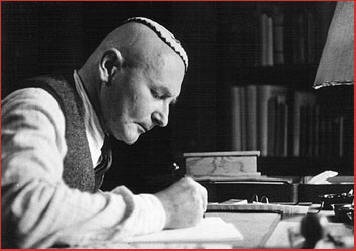

 del.icio.us
del.icio.us
 Digg
Digg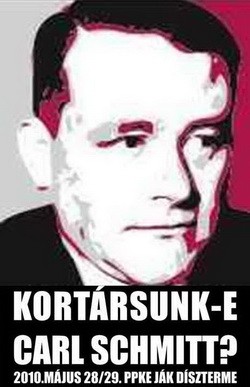 Der 1985 im Alter von 97 Jahren verstorbene Carl Schmitt hat sich nicht nur mit Staats- und Verfassungsrecht, sondern auch mit grundsätzlichen Fragen der Kriegstheorie, der Geo- und Sicherheitspolitik beschäftigt. Dabei wurde sein Denken nachhaltig von der Erfahrung des „Europäischen Bürgerkriegs“ (Ernst Nolte) geprägt, vor allem durch die spezifisch deutsche Bürgerkriegslage zwischen 1919 und 1923 sowie die Gefahr ihrer Wiederholung in den Jahren 1932 bis 1934. Schmitts Nationalismus und sein Eintreten für einen starken Staat lassen sich aus diesem Zusammenhang ebenso erklären wie seine Entscheidung zu Gunsten der staatlichen Ordnung, die notfalls unter Bruch der Verfassung gewahrt werden sollte, oder seine Entscheidung für eine zeitweise Kollaboration mit dem NS-Regime, das allein in der Lage schien, den vollständigen Zusammenbruch zu verhindern.
Der 1985 im Alter von 97 Jahren verstorbene Carl Schmitt hat sich nicht nur mit Staats- und Verfassungsrecht, sondern auch mit grundsätzlichen Fragen der Kriegstheorie, der Geo- und Sicherheitspolitik beschäftigt. Dabei wurde sein Denken nachhaltig von der Erfahrung des „Europäischen Bürgerkriegs“ (Ernst Nolte) geprägt, vor allem durch die spezifisch deutsche Bürgerkriegslage zwischen 1919 und 1923 sowie die Gefahr ihrer Wiederholung in den Jahren 1932 bis 1934. Schmitts Nationalismus und sein Eintreten für einen starken Staat lassen sich aus diesem Zusammenhang ebenso erklären wie seine Entscheidung zu Gunsten der staatlichen Ordnung, die notfalls unter Bruch der Verfassung gewahrt werden sollte, oder seine Entscheidung für eine zeitweise Kollaboration mit dem NS-Regime, das allein in der Lage schien, den vollständigen Zusammenbruch zu verhindern.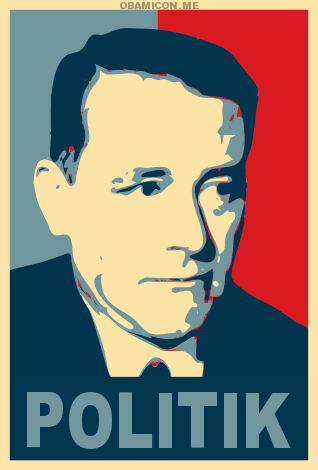 L'aveva chiamata san Casciano la sua casa del buen retiro a Plattenberg, il luogo natìo in cui tornò per trascorrere la lunga vecchiaia fino alla morte, all'età di 97 anni, nel 1985. San Casciano, come l'ultima casa-esilio di Niccolò Machiavelli, quando si ritirò dall'attività di Segretario.
L'aveva chiamata san Casciano la sua casa del buen retiro a Plattenberg, il luogo natìo in cui tornò per trascorrere la lunga vecchiaia fino alla morte, all'età di 97 anni, nel 1985. San Casciano, come l'ultima casa-esilio di Niccolò Machiavelli, quando si ritirò dall'attività di Segretario. 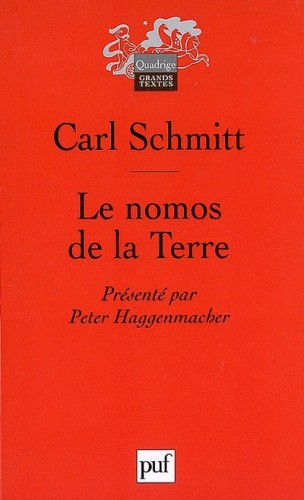 Si le nom de Carl Schmitt n’est plus tout à fait inconnu en France, où plus d’une dizaine de ses ouvrages ont déjà été traduits depuis 1972, sa personnalité reste encore très controversée. Grand théoricien du droit constitutionnel et international de l’Allemagne de l’entre deux guerres, son attitude à l’égard du nazisme lui valut d’être emprisonné plus d’une année après 1945. Refuser d’aller plus loin serait pourtant regrettable, comme ceux qui voudront bien ouvrir Le nomos de la terre s’en rendront rapidement compte. Publié en 1950 et composé dans des conditions difficiles, ce gros ouvrage offre une vue d’ensemble sur la pensée de l’auteur et passe à bon droit pour son oeuvre maîtresse.
Si le nom de Carl Schmitt n’est plus tout à fait inconnu en France, où plus d’une dizaine de ses ouvrages ont déjà été traduits depuis 1972, sa personnalité reste encore très controversée. Grand théoricien du droit constitutionnel et international de l’Allemagne de l’entre deux guerres, son attitude à l’égard du nazisme lui valut d’être emprisonné plus d’une année après 1945. Refuser d’aller plus loin serait pourtant regrettable, comme ceux qui voudront bien ouvrir Le nomos de la terre s’en rendront rapidement compte. Publié en 1950 et composé dans des conditions difficiles, ce gros ouvrage offre une vue d’ensemble sur la pensée de l’auteur et passe à bon droit pour son oeuvre maîtresse.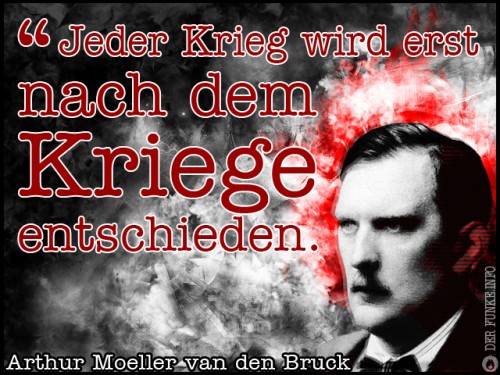

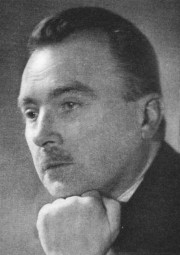 Wil men een geboortejaar voor de conservatieve revolutie in Nederland vaststellen, dan kan men niet anders dan het jaar 1921 noemen, waarin twee grote persoonlijkheden op de voorgrond traden: Prof. Bolland en Emile Verviers (foto). Verviers wendde zich in 1921 met een open brief tot H.M. de Koningin, waarin o.a. werd aangedrongen op de vorming van een nationaal kabinet. De sympathiebetuigingen, die hij naar aanleiding van deze open brief uit het gehele·land ontving, waren voor Dr. Verviers aanleiding om over te gaan tot de oprichting van het tijdschrift “Katholieke Staatkunde”, later veranderd in “Opbouwende Staatkunde”, waarin hij gelegenheid vond zijn ideëen nader uiteen te zetten. Tot het einde van het jaar 1924 is dit blad regelmatig verschenen; daarna werd de uitgave plotseling stopgezet. Van zijn hand verscheen o.a. een studie over “De kentering in het materialistisch denken” (Oisterwijk 1927). Dr. Verviers doceerde economische politiek aan de Universiteit te Leiden. Hoewel het “Genootschap voor Opbouwende Staatkunde”, waarin o.m. priester Wouter Lutkie een belangrijke rol vervulde, formeel bleef voortbestaan, gold het tijdschrift Opbouwende Staatkunde als te zijn opgenomen in het orgaan van het Verbond voor, Actualisten, De Vaderlander, dat in de zomer van 1924 verscheen. De ware reden voor de opheffing van het tijdschrift en de daaraan voorafgegane naamsverandering, was de zware druk, die van de zijde van de kerkelijke overheid op Dr. Verviers werd uitgeoefend. Eerst tien jaar later verscheen hij weer in de openbaarheid, nu als hoofdredacteur van het maandblad Nieuw Nederland, dat zich aankondigde als een onafhankelijk orgaan ter bestudering en bevordering van de nieuwe gedachte. Daaraan werd toegevoegd dat de Nationaal Socialistische Beweging in Nederland met belangstelling kennis nam van de vrije uitingen der medewerkers, om zich op den duur het beste daaruit tot het hare te maken. Dr. Verviers open de het eerste nummer (Juni 1934) met een artikel. getiteld “Orde”, eindigend met de woorden: “Laten wij, nu alles onder onze voeten wegzinkt, elkaar in de aangegeven geest eendrachtig de hand reiken tot nationale wederopstanding van ons volk. En er groeie een herboren, een Nieuw Nederland, uit de wijsheid en het sterk geloof van onze mannen, uit de toewijding en de liefde van onze vrouwen, uit de moed en de fierheid van onze jongelingschap, uit de schone en scheppende hope van onze jonge meisjes. Hou Zee!” In de loop van de tweede jaargang (1935) trad hij – andermaal als gevolg van de druk, die op hem uitgeoefend werd – als hoofdredacteur af; otn door Dr. R. van Genechten en E. J. Roskam te worden opgevolgd. Dr. Verviers trad daarna niet meer op de voorgrond.
Wil men een geboortejaar voor de conservatieve revolutie in Nederland vaststellen, dan kan men niet anders dan het jaar 1921 noemen, waarin twee grote persoonlijkheden op de voorgrond traden: Prof. Bolland en Emile Verviers (foto). Verviers wendde zich in 1921 met een open brief tot H.M. de Koningin, waarin o.a. werd aangedrongen op de vorming van een nationaal kabinet. De sympathiebetuigingen, die hij naar aanleiding van deze open brief uit het gehele·land ontving, waren voor Dr. Verviers aanleiding om over te gaan tot de oprichting van het tijdschrift “Katholieke Staatkunde”, later veranderd in “Opbouwende Staatkunde”, waarin hij gelegenheid vond zijn ideëen nader uiteen te zetten. Tot het einde van het jaar 1924 is dit blad regelmatig verschenen; daarna werd de uitgave plotseling stopgezet. Van zijn hand verscheen o.a. een studie over “De kentering in het materialistisch denken” (Oisterwijk 1927). Dr. Verviers doceerde economische politiek aan de Universiteit te Leiden. Hoewel het “Genootschap voor Opbouwende Staatkunde”, waarin o.m. priester Wouter Lutkie een belangrijke rol vervulde, formeel bleef voortbestaan, gold het tijdschrift Opbouwende Staatkunde als te zijn opgenomen in het orgaan van het Verbond voor, Actualisten, De Vaderlander, dat in de zomer van 1924 verscheen. De ware reden voor de opheffing van het tijdschrift en de daaraan voorafgegane naamsverandering, was de zware druk, die van de zijde van de kerkelijke overheid op Dr. Verviers werd uitgeoefend. Eerst tien jaar later verscheen hij weer in de openbaarheid, nu als hoofdredacteur van het maandblad Nieuw Nederland, dat zich aankondigde als een onafhankelijk orgaan ter bestudering en bevordering van de nieuwe gedachte. Daaraan werd toegevoegd dat de Nationaal Socialistische Beweging in Nederland met belangstelling kennis nam van de vrije uitingen der medewerkers, om zich op den duur het beste daaruit tot het hare te maken. Dr. Verviers open de het eerste nummer (Juni 1934) met een artikel. getiteld “Orde”, eindigend met de woorden: “Laten wij, nu alles onder onze voeten wegzinkt, elkaar in de aangegeven geest eendrachtig de hand reiken tot nationale wederopstanding van ons volk. En er groeie een herboren, een Nieuw Nederland, uit de wijsheid en het sterk geloof van onze mannen, uit de toewijding en de liefde van onze vrouwen, uit de moed en de fierheid van onze jongelingschap, uit de schone en scheppende hope van onze jonge meisjes. Hou Zee!” In de loop van de tweede jaargang (1935) trad hij – andermaal als gevolg van de druk, die op hem uitgeoefend werd – als hoofdredacteur af; otn door Dr. R. van Genechten en E. J. Roskam te worden opgevolgd. Dr. Verviers trad daarna niet meer op de voorgrond.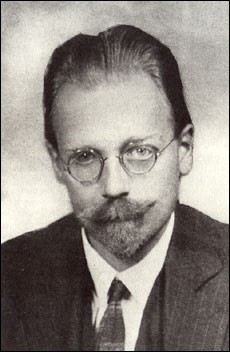 Zijn brochures (o.a. “Lenin stinkt” en “Hieronymus de Momper”) waren revolutionair van stijl; hij schreef niet alleen een pamflet tegen het Belgische verdrag, maar joeg ook met een pistool in de hand – geassisteerd door een veldwachter met getrokken sabel – een groep Belgische demonstranten in zeeuws-Vlaanderen op de vlucht. Zijn geschriften en zijn actief optreden, o.a. op de verjaardag van Prinses Juliana, toen Wichman de VARA-microfoon stuksloeg, waarvoor Teun de Klepperman een schimprede zou houden, en als gevolg daarvan een vechtpartij met de socialist Meyer Sluizer, waarbij hij een paar gebroken ribben opliep, bezorgden Wichman een grote populariteit . Hij was ook de eerste die een bezem als symbool gebruikte, een voorbeeld dat druk navolging gevonden heeft. De vele kunstenaars onder zijn volgelingen – ook Wichman zelf was schilder – kregen bij de acties van “De Anderen”, zoals Wichman en de zijnen zich veelal noemden, gelegenheid genoeg hun artistieke neigingen bot te vieren: straten en muren en verkiezingsborden van tegenstanders werden met de meest pakkende leuzen voorzien.
Zijn brochures (o.a. “Lenin stinkt” en “Hieronymus de Momper”) waren revolutionair van stijl; hij schreef niet alleen een pamflet tegen het Belgische verdrag, maar joeg ook met een pistool in de hand – geassisteerd door een veldwachter met getrokken sabel – een groep Belgische demonstranten in zeeuws-Vlaanderen op de vlucht. Zijn geschriften en zijn actief optreden, o.a. op de verjaardag van Prinses Juliana, toen Wichman de VARA-microfoon stuksloeg, waarvoor Teun de Klepperman een schimprede zou houden, en als gevolg daarvan een vechtpartij met de socialist Meyer Sluizer, waarbij hij een paar gebroken ribben opliep, bezorgden Wichman een grote populariteit . Hij was ook de eerste die een bezem als symbool gebruikte, een voorbeeld dat druk navolging gevonden heeft. De vele kunstenaars onder zijn volgelingen – ook Wichman zelf was schilder – kregen bij de acties van “De Anderen”, zoals Wichman en de zijnen zich veelal noemden, gelegenheid genoeg hun artistieke neigingen bot te vieren: straten en muren en verkiezingsborden van tegenstanders werden met de meest pakkende leuzen voorzien.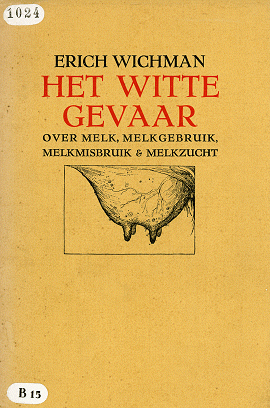 In Mei 1924 herleefde de activiteit van de groep Opbouwende Staatkunde onder een nieuw bestuur. Spreekbuis van deze groep was het vanaf April 1925 verschijnende maandblad Politiek Herstel. “tijdschrift uitgegeven door een groep Katholieken ter bevordering der anti-democratische herstel-gedachte”. In het eerste nummer citeert de redactie, bestaande uit Mr. Jos. Gillissen, J. J. M. Haslinghuis, Mr. L. van Heyst, Mr. O. Baron van Howell tot Westerflier en P. de Kuyper, baar uitspraak van 1924: “Wij zouden in dit inleidingswoord niet volledig zijn, wanneer we niet wezen op de lichtpunten voor de toekomst. Ten eerste is sinds de oprichting van het tijdschrift (Opbouwende Staatkunde) reeds een belangrijk deel van het gestelde doel (een nationale. anti- democratische, ommekeer in de geesten) verwezenlijkt. We willen niet zeggen dat dit uiterlijk, formeel, door de officieële organen en personen erkend wordt, maar toch, voor degeen die wat dieper schouwt achter de schijn der dingen en der personen, zijn er talrijke onbedriegelijke tekenen in ons nationale leven, die wijzen op een (zij ‘t grotendeels halfbewuste) evolutie in onze richting. Het zaad door Verviers en Lutkie uitgestrooid, beeft wortel geschoten.” En de redactie kon daar nu aan toevoegen, dat deze ontwikkeling sindsdien nog duidelijker aan het daglicht getreden was. Duidelijk werd de hier gepropageerde Nederlandse Herstel-beweging geplaatst in het kader van een reeds lang groeiende, diep gefundeerde Europese cultuurstroming.
In Mei 1924 herleefde de activiteit van de groep Opbouwende Staatkunde onder een nieuw bestuur. Spreekbuis van deze groep was het vanaf April 1925 verschijnende maandblad Politiek Herstel. “tijdschrift uitgegeven door een groep Katholieken ter bevordering der anti-democratische herstel-gedachte”. In het eerste nummer citeert de redactie, bestaande uit Mr. Jos. Gillissen, J. J. M. Haslinghuis, Mr. L. van Heyst, Mr. O. Baron van Howell tot Westerflier en P. de Kuyper, baar uitspraak van 1924: “Wij zouden in dit inleidingswoord niet volledig zijn, wanneer we niet wezen op de lichtpunten voor de toekomst. Ten eerste is sinds de oprichting van het tijdschrift (Opbouwende Staatkunde) reeds een belangrijk deel van het gestelde doel (een nationale. anti- democratische, ommekeer in de geesten) verwezenlijkt. We willen niet zeggen dat dit uiterlijk, formeel, door de officieële organen en personen erkend wordt, maar toch, voor degeen die wat dieper schouwt achter de schijn der dingen en der personen, zijn er talrijke onbedriegelijke tekenen in ons nationale leven, die wijzen op een (zij ‘t grotendeels halfbewuste) evolutie in onze richting. Het zaad door Verviers en Lutkie uitgestrooid, beeft wortel geschoten.” En de redactie kon daar nu aan toevoegen, dat deze ontwikkeling sindsdien nog duidelijker aan het daglicht getreden was. Duidelijk werd de hier gepropageerde Nederlandse Herstel-beweging geplaatst in het kader van een reeds lang groeiende, diep gefundeerde Europese cultuurstroming.

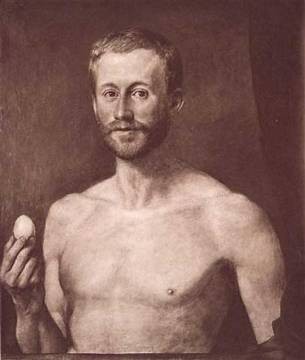
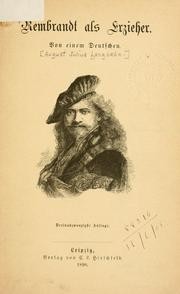 1890
1890
 In keeping with his contemptuous view of modernity, Evola regarded modern sexual mores and forms of expression as degenerate. Just as Evola rejected modern evolutionary biology, so did he also oppose twentieth century approaches to the understanding of sexuality of the kind found in such fields as sociobiology, psychology, and the newly emergent discipline of sexology. Interestingly, Evola did not view the reproductive instinct in mankind to be the principal force driving sexuality and he criticized these academic disciplines for their efforts to interpret sexuality in terms of reproductive drives, regarding these efforts as a reflection of the materialistic reductionism which he so bitterly opposed. Evola’s use of the term “metaphysics” with regards to sexuality represents in part his efforts to differentiate what he considered to be the “first principles” of human sexuality from the merely biological instinct for the reproduction of the species, which he regarded as being among the basest and least meaningful aspects of sex. It is also interesting to note at this point that Evola himself never married or had children of his own. Nor is it known to what degree his own paralysis generated by injuries sustained during World War Two as a result of a 1945 Soviet bombing raid on Vienna affected his own reproductive capabilities or his views of sexuality.
In keeping with his contemptuous view of modernity, Evola regarded modern sexual mores and forms of expression as degenerate. Just as Evola rejected modern evolutionary biology, so did he also oppose twentieth century approaches to the understanding of sexuality of the kind found in such fields as sociobiology, psychology, and the newly emergent discipline of sexology. Interestingly, Evola did not view the reproductive instinct in mankind to be the principal force driving sexuality and he criticized these academic disciplines for their efforts to interpret sexuality in terms of reproductive drives, regarding these efforts as a reflection of the materialistic reductionism which he so bitterly opposed. Evola’s use of the term “metaphysics” with regards to sexuality represents in part his efforts to differentiate what he considered to be the “first principles” of human sexuality from the merely biological instinct for the reproduction of the species, which he regarded as being among the basest and least meaningful aspects of sex. It is also interesting to note at this point that Evola himself never married or had children of his own. Nor is it known to what degree his own paralysis generated by injuries sustained during World War Two as a result of a 1945 Soviet bombing raid on Vienna affected his own reproductive capabilities or his views of sexuality.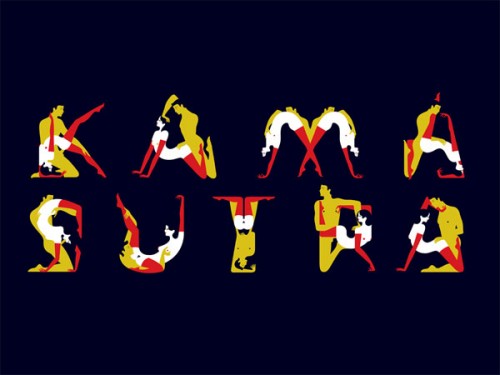

 paperback: $20
paperback: $20
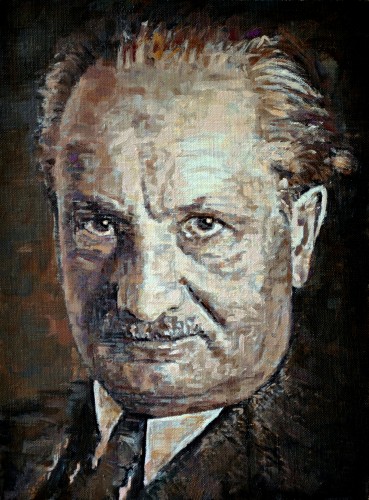
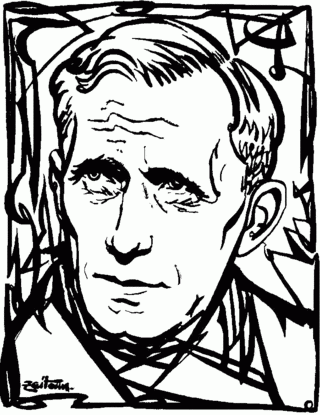 Das Wort „Endzeiten“ erinnert an die biblischen Voraussagen über einen linearen Zeitverlauf, der in ein apokalyptisches Ende der Welt einmünden soll. Diese Idee ist typisch für den Offenbarungsmenschen, dessen Denken aus semitischen Quellen gespeist wird: „Dann sah ich einen neuen Himmel und eine neue Erde. Der erste Himmel und die erste Erde waren verschwunden, und das Meer war nicht mehr da. Ich sah, wie die Heilige Stadt, das neue Jerusalem, von Gott aus dem Himmel herabkam“
Das Wort „Endzeiten“ erinnert an die biblischen Voraussagen über einen linearen Zeitverlauf, der in ein apokalyptisches Ende der Welt einmünden soll. Diese Idee ist typisch für den Offenbarungsmenschen, dessen Denken aus semitischen Quellen gespeist wird: „Dann sah ich einen neuen Himmel und eine neue Erde. Der erste Himmel und die erste Erde waren verschwunden, und das Meer war nicht mehr da. Ich sah, wie die Heilige Stadt, das neue Jerusalem, von Gott aus dem Himmel herabkam“ 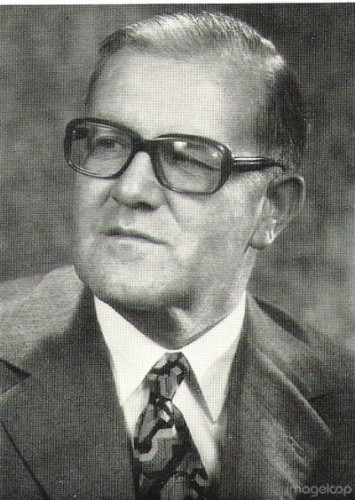

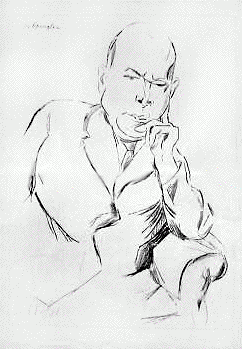 Il titolo dell’articolo potrebbe apparire fuorviante: cosa c’entra con l’Italia il profeta germanico del Tramonto dell’Occidente, il teorico del socialismo prussiano, bollato come precursore del nazionalsocialismo, ma letto avidamente anche da Kissinger e Malcolm X?
Il titolo dell’articolo potrebbe apparire fuorviante: cosa c’entra con l’Italia il profeta germanico del Tramonto dell’Occidente, il teorico del socialismo prussiano, bollato come precursore del nazionalsocialismo, ma letto avidamente anche da Kissinger e Malcolm X? 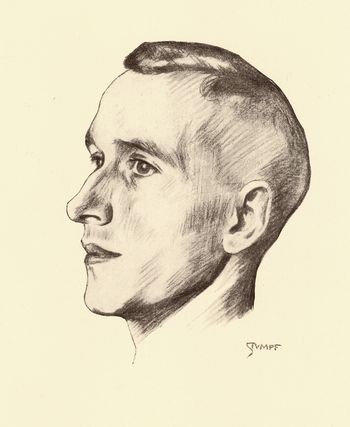
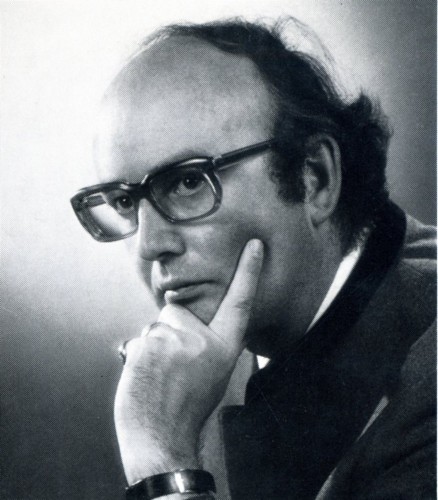
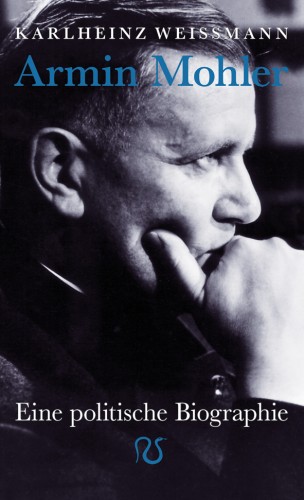
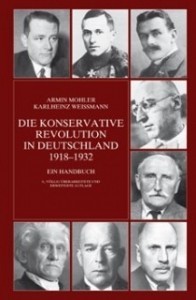 This writer was privileged to spend a day with Armin Mohler and his gracious wife at their home in Munich early in the summer of 1993. After having spoken earlier with historian Ernst Nolte, I was interested to compare his views with those of Mohler. In particular, I was curious to compare how each of these eminent figures in German intellectual life assessed the present and future climate of their nation, and of the continent within which it plays such a critical role.
This writer was privileged to spend a day with Armin Mohler and his gracious wife at their home in Munich early in the summer of 1993. After having spoken earlier with historian Ernst Nolte, I was interested to compare his views with those of Mohler. In particular, I was curious to compare how each of these eminent figures in German intellectual life assessed the present and future climate of their nation, and of the continent within which it plays such a critical role. 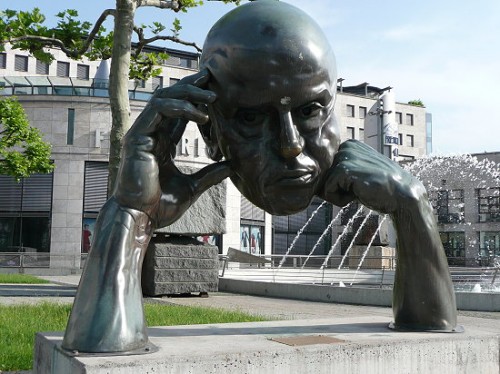
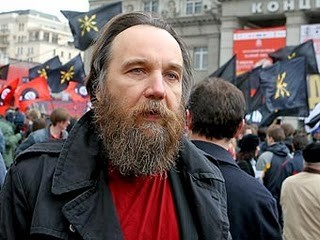

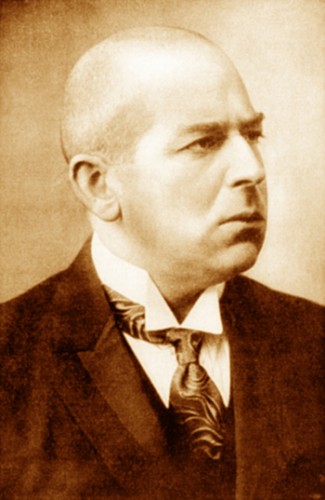 Non ci si stancherà mai di raccomandare la lettura di Oswald Spengler (1880 – 1936), eclettico filosofo della storia tedesco e teorico del socialismo prussiano, le cui opere hanno riscosso successo e interesse negli ambiti più disparati, da Mussolini a Kissinger, dalla Germania di Weimar alla Russia contemporanea. Tra i vari motivi per cui risulta ancora oggi molto attuale, non possiamo non citare le sue ipotesi storiche riguardanti la Russia.
Non ci si stancherà mai di raccomandare la lettura di Oswald Spengler (1880 – 1936), eclettico filosofo della storia tedesco e teorico del socialismo prussiano, le cui opere hanno riscosso successo e interesse negli ambiti più disparati, da Mussolini a Kissinger, dalla Germania di Weimar alla Russia contemporanea. Tra i vari motivi per cui risulta ancora oggi molto attuale, non possiamo non citare le sue ipotesi storiche riguardanti la Russia.